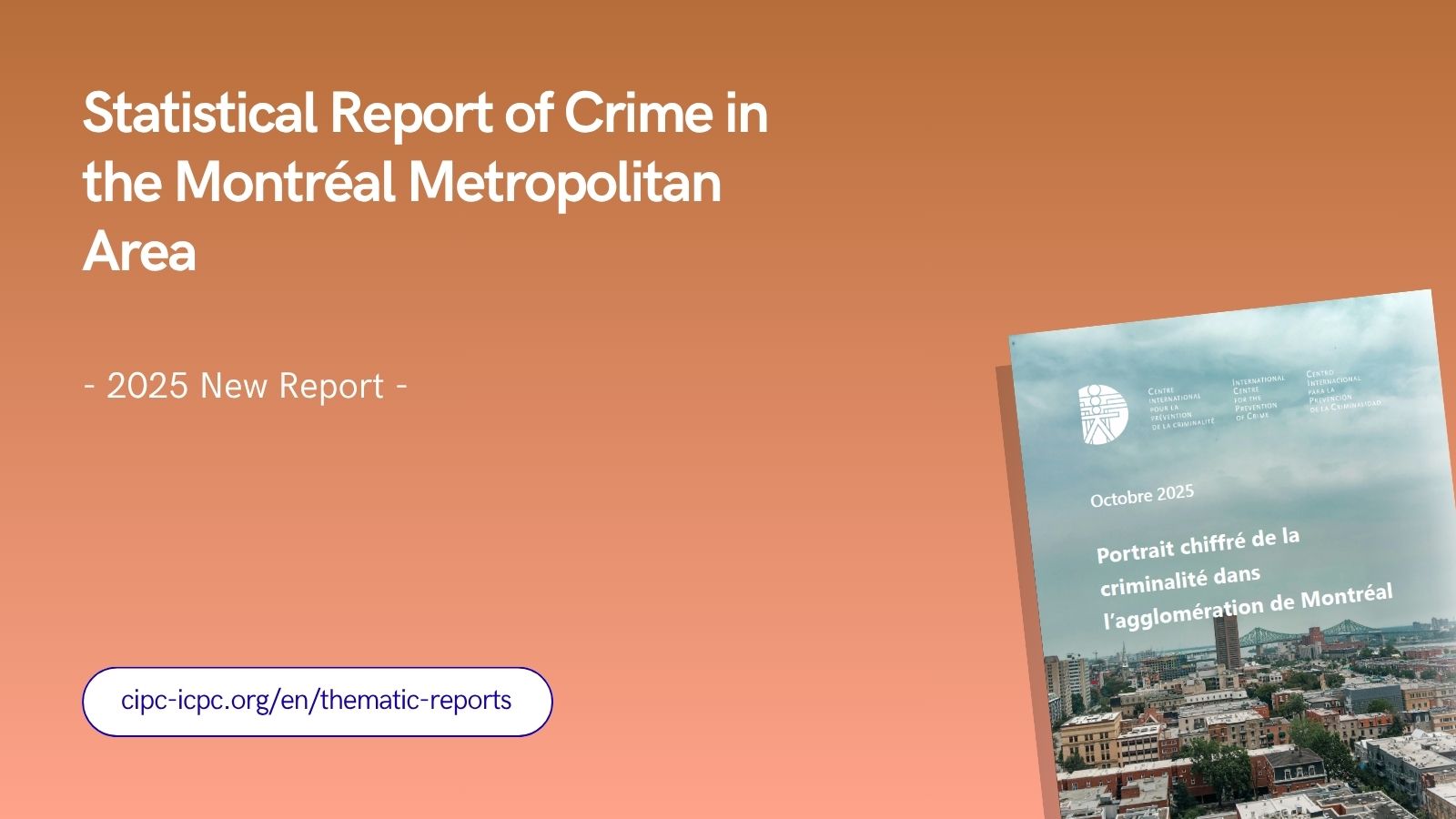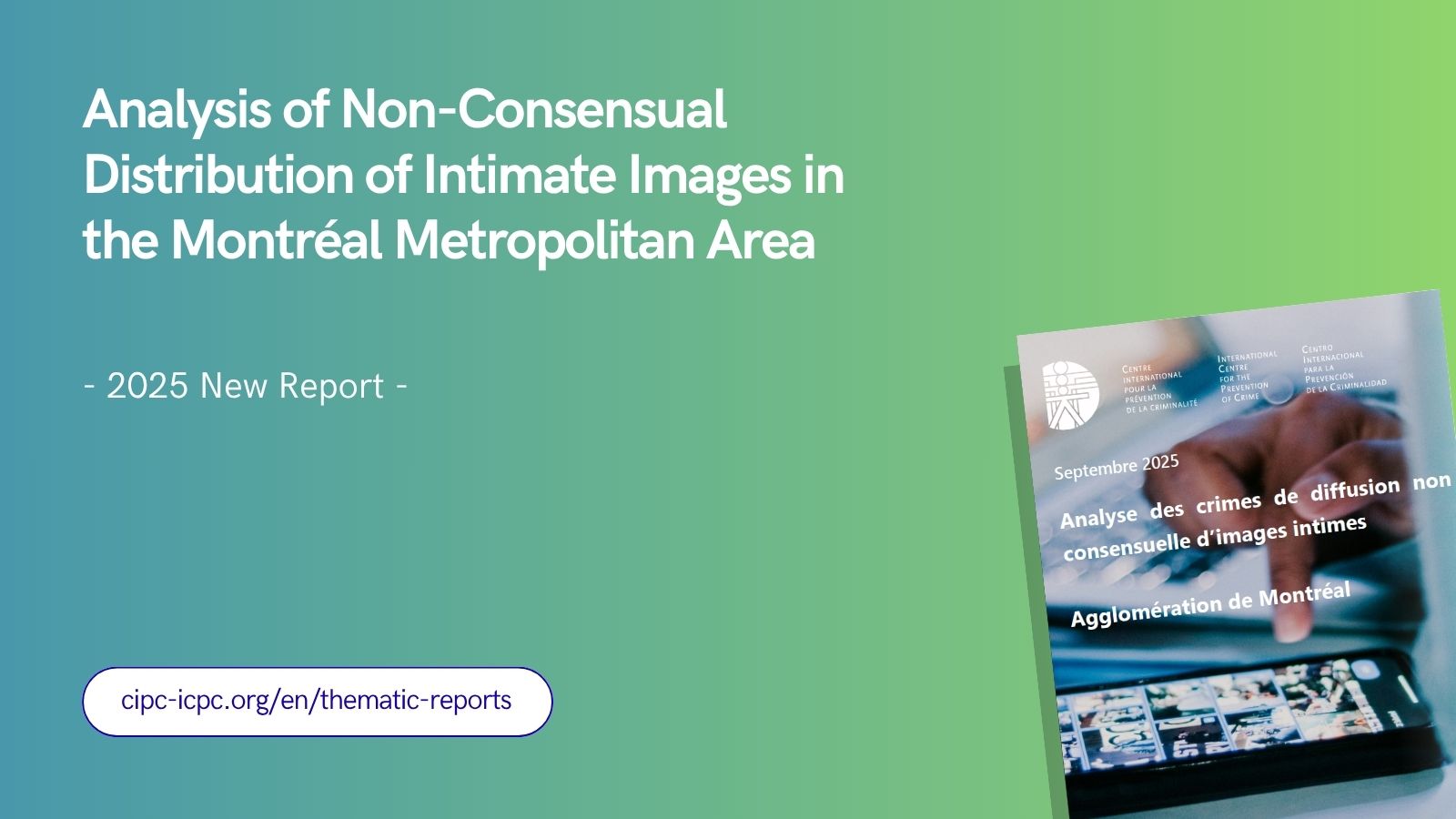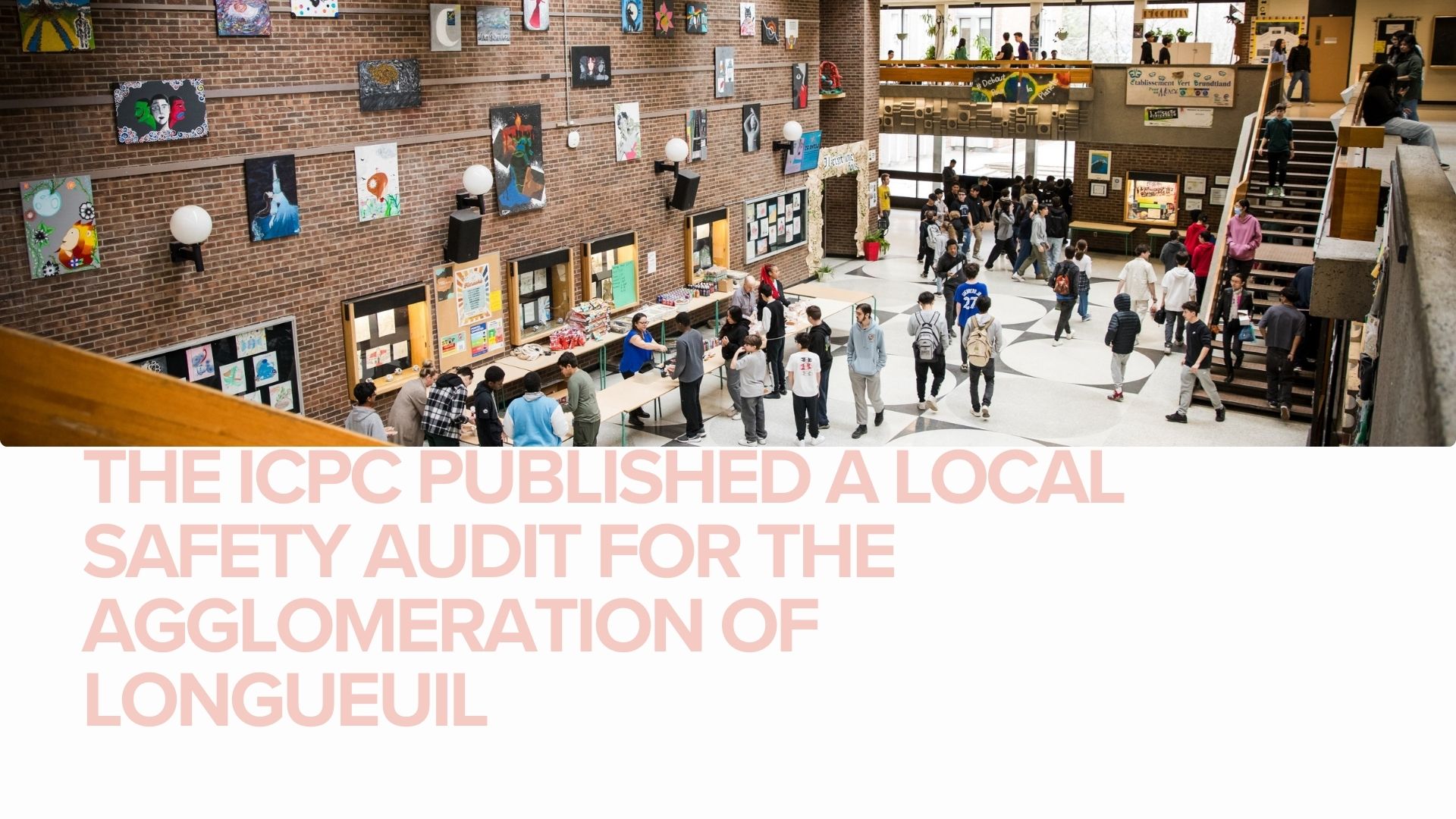Various types of violence affect girls, women and elders. To name only one, it was revealed that up to 78% of women have undergone an act of cyberviolence from their partner or from a former partner and that 47% of younger women, of which 75% were adolescents, had undergone acts of cyberviolence during an intimate relationship in the last year (Gauvreau, 2022; Fernet et al., 2019).
The Villeray—Saint-Michel—Parc-Extension borough, in Montreal, has mandated the International Centre for the Prevention of Crime (ICPC) to illustrate the state of safety on its territory. A larger focus was put on incidents involving girls and women of all ages. The objective was to target the main issues, as much qualitative as quantitative, to issue recommendations regarding initiatives that could be put in place to better the situation.
This audit presents the issue in many different ways depending on the targeted age group, be it adolescents (12-17), young women (18-25), adult women (24-64) and elders (65 and over), as well as recommendations for action and prevention. Issues include sexual, psychological and interpersonal violence, as well as cyber-violence and abuse.
The LSA is in line with the plan announced by VSP in 2022, which made women’s safety a priority for the borough.
Media coverage (in French only) :
- March 20, 2024, LebulletinFR: Violence faite aux femmes: un rapport accablant rendu public – Le Journal de Montréal. Read the article.
- October 11, 2023, Tout un matin, Radio-Canada : Rattrapage du mercredi 11 oct. 2023 : Évacuations des Canadiens et Canadiennes en Israël, et conversion d’une église en chambre froide. Listen to the interview (from 0:00 to 1:50)
- October 10, 2023, Le 15-18, Radio-Canada : Des activités réservées aux filles dans Saint-Michel. Listen to the interview
- July 24 2023, Journal Métro : Villeray–Saint-Michel–Parc-Extension: 3 M$ pour soutenir les jeunes et les femmes. Read the article
- July 6 2023, EST Médias : VSP finance des projets pour les jeunes et leurs parents. Read the article
- June 23 2023, Le Journal de Montréal : Violence faite aux femmes: un rapport accablant rendu public. Read the article
- June 23 2023, Le Journal de Québec : Violence faite aux femmes: un rapport accablant rendu public. Read the article
- June 22 2023, 98,5 : Villeray-Saint-Michel-Parc-Extension. Le sentiment d’insécurité chez les femmes. Listen to the interview
Read the report here (synthesized version in French)
Read the report here (complete version in French)









 In 2022, several acts of violence involving young victims and alleged perpetrators were committed in the cities and boroughs of Greater Montreal. Young adults aged between 18 and 25 represent the majority of victims, but all age groups (11 and under and 12 to 17) are concerned.
In 2022, several acts of violence involving young victims and alleged perpetrators were committed in the cities and boroughs of Greater Montreal. Young adults aged between 18 and 25 represent the majority of victims, but all age groups (11 and under and 12 to 17) are concerned.

